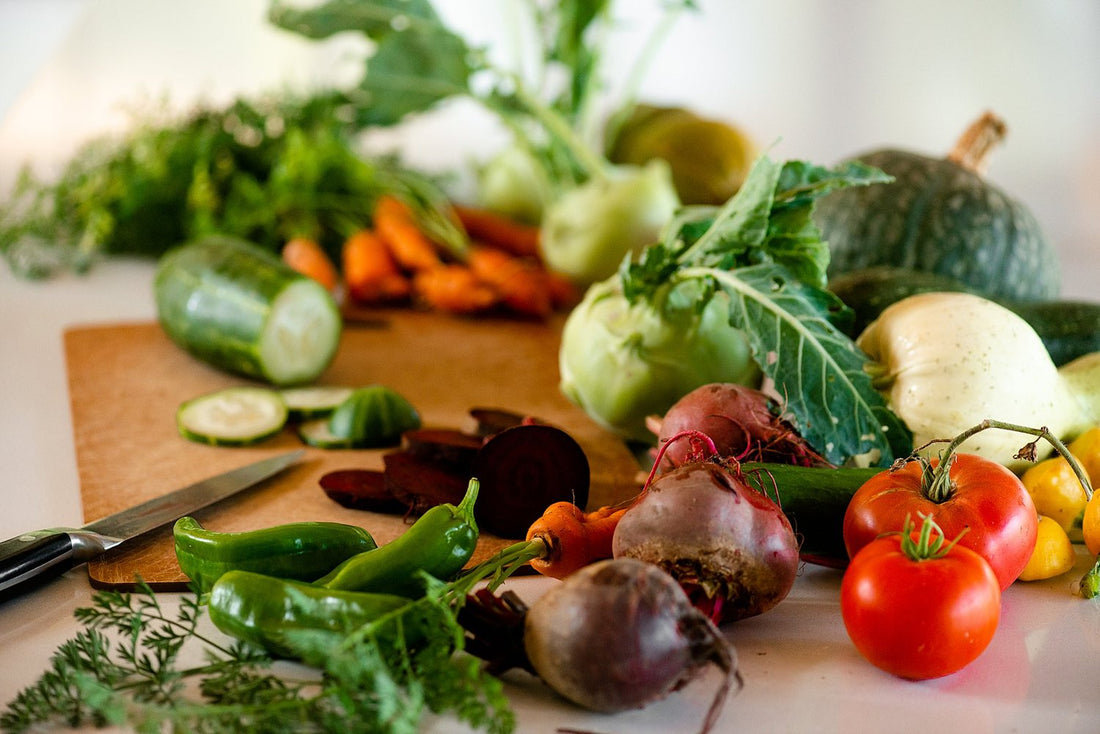How to Reduce Glucose Spikes:
The appearance of glucose spikes, which is also the scientific name for high blood sugar spikes, occurs right after the ingestion of nutrient-rich content where there is a lightning-fast rise in the level of blood sugar inside your body. It may show some bad health complications are due to those, especially when the individual has diabetics, prediabetics, and insulin resistance.
The high glucose level of your body is the main cause of damage to the blood vessels and nerves which in turn can lead to complications such as heart disease, kidney failure, and nerve damage. Having blood glucose levels at the level of recommended glucose ranges are the key requirement for the bodies being healthy for a longer period. Due to the different ways of this guide, it will focus on many ways to reduce glucose spikes, which will be mainly about the changes made to your eating habits, the movement you do, the changes in your lifestyle, and of course medications that are supposed to correct this condition.
Understanding Glucose Spikes
It's essential to know the fundamental reasons behind these spikes before you find the solution to eliminating them. When you take in carbohydrates, your body will render them into glucose which then will travel through your bloodstream. Hormone insulin is generated by pancreas which is vital in enabling the glucose to be used by all the organs. Elevating the sugar level may lead to a condition that requires medical intervention, if the process of producing insulin of the pancreas is defective or high amounts of high-glycemic foods have been consumed, creating glucose to accumulate in the blood.
Several factors influence glucose levels:
- Type of Carbohydrates: Simple carbohydrates (like sugar and white flour) are broken down quickly, causing rapid glucose spikes. Complex carbohydrates (like whole grains and vegetables) break down more slowly.
- Portion Size: Larger meals, particularly those high in carbs, can overwhelm the body's insulin response.
- Meal Timing and Composition: The timing of your meals and the macronutrient balance (carbs, fats, proteins) also affect glucose levels.
- Physical Activity: Exercise helps muscles absorb glucose, reducing blood levels.
- Sleep and Stress: Poor sleep and high stress can negatively impact insulin sensitivity.
Dietary Strategies
- Choose Low-Glycemic Foods
Glycemic index (GI) is a value that shows how quickly food causes an increase in the level of sugar in our blood. The lower the GI is, the slower the carbohydrates from that food get into the blood and lead to a slower blood glucose increase. Add these low-GI foods to your diet:
- Non-starchy vegetables (broccoli, spinach, bell peppers)
- Whole grains (quinoa, barley, oats)
- Legumes (lentils, chickpeas, black beans)
- Nuts and seeds (almonds, chia seeds, flaxseeds)
- Fruits with low GI (berries, apples, pears)
- Increase Fibre Intake
Fibre has an impact of slowing down the digestion and assimilation of carbohydrates thus restricting the development of quick glucose spikes. Aim for a diet high in soluble fibre, which can be found in:
- Oats
- Barley
- Beans
- Fruits like apples and citrus
- Vegetables like carrots and Brussels sprouts
- Incorporate Healthy Fats and Proteins
Foods high in fat and protein slow down the absorption of carbs, hence the rate of glucose entering the blood falls as well. Use healthy fats and lean proteins in diet planning to arrange meals wisely.
- Healthy fats: avocados, olive oil, nuts, seeds, fatty fish (salmon, mackerel)
- Lean proteins: chicken, turkey, tofu, tempeh, legumes
- Watch Portion Sizes
Consuming large servings often, especially those that are high in carbohydrates, can result in a considerable amount of glucose entered bloodstream. Use smaller plates and keep an eye on the right serving sizes. Eating five small meals instead of three big ones can make it easier for blood sugar levels to stay within normal.
- Be Mindful of Sugary Drinks
Sugary drinks like soda, fruit juice, or energy drinks which sentence themselves are high in simple sugars causing sudden glucose spikes. Instead prefer water, herbal teas, or drinks with no added sugar. Relatively, fruit juices can be watered down with regular water to reduce the sugary content.
Physical Activity
- Regular Exercise
Regular physical activity and moving more helps not only in the improving insulin sensitivity but it also makes muscles use the glucose more efficiently. Try to get a minimum of 150 minutes of daily activities, which are not intense, such as walking fast, bicycling, or swimming. Resistance training exercises, i.e., dead weights or resistance band use, are also good since they can increase muscle mass, thereby leading to an enhanced uptake of glucose.
- Post-Meal Activity
Physical exercise of light intensity (e.g., walking) is often associated with health benefits such as the reduction of your blood sugar levels after a meal before bedtime.
Lifestyle Modifications
- Manage Stress
Chronic stress triggers the release of hormones like cortisol, which can increase blood sugar levels. Practice stress-reducing techniques such as:
- Meditation and Mindfulness: Spend a few minutes each day focusing on your breath and calming your mind.
- Yoga and Tai Chi: These practices combine physical movement with breath control and relaxation.
- Deep Breathing Exercises: Simple deep breathing exercises can help lower stress quickly.
- Improve Sleep Quality
Lack of sleep can negatively affect insulin sensitivity, leading to higher blood glucose levels. Aim for 7-9 hours of quality sleep per night by:
- Maintaining a consistent sleep schedule
- Creating a relaxing bedtime routine
- Keeping your sleep environment cool, dark, and quiet
- Limiting caffeine and electronic devices before bed
- Stay Hydrated
Proper hydration helps the kidneys flush out excess glucose through urine. Drink plenty of water throughout the day. Sometimes thirst can be mistaken for hunger, leading to unnecessary snacking that can cause glucose spikes.
Medical Interventions
- Medications
For individuals with diabetes or severe insulin resistance, medications might be necessary to manage blood glucose levels. Common medications include:
- Metformin: Helps reduce glucose production in the liver and improves insulin sensitivity.
- Sulfonylureas: Stimulate the pancreas to produce more insulin.
- DPP-4 Inhibitors: Increase insulin production and decrease glucose production.
- GLP-1 Receptor Agonists: Slow digestion and help lower blood sugar after meals.
- Insulin Therapy: Necessary for some individuals, particularly those with type 1 diabetes.
- Continuous Glucose Monitoring (CGM)
CGM systems offer blood sugar readings in real-time, thus helping individuals in making informed choices about diet, exercise, and medication. This program runs on the premise that users receive warnings about the oncoming glucose spikes, whereby users would be able to carry out protective actions towards safeguarding their lives.
Supplements
Some of the common supplements can help in blood glucose level control. A person should discuss with his health-care provider before attempting any of these techniques, most importantly if he is presently on medication. Aside from the usual supplements, some of the other types of supplements are:
- Chromium: May improve insulin sensitivity.
- Magnesium: Low levels of magnesium are associated with insulin resistance.
- Alpha-Lipoic Acid: An antioxidant that may help reduce glucose levels.
- Berberine: Shown to lower blood sugar and improve insulin sensitivity.
Practical Tips for Daily Life
- Meal Planning
Creating a meal plan allows you to eat a healthier diet and eliminate the temptation of processed food such as high-carb and high-sugar junk. Use a variety of nutrient-dense foods that are balanced with carbohydrates, proteins, and fats. Check out our Pep cookware range to make cooking easy!
- Reading Labels
One way to adopt a more sensible diet is by educating yourself about the food you eat. A good rule of thumb is to obtain food low in added sugars while having high fibre. Watch out for serving size portions and the total carbohydrate content are provided.
- Mindful Eating
Mindful eating occurs when we are completely aware during eating and drinking activities. This practice can lead to increased enjoyment of food and awareness of being full that help us prevent overeating. Tips include:
- Eating slowly and savouring each bite
- Avoiding distractions like TV or smartphones while eating
- Listening to your body's hunger and fullness signals
Keeping glucose under control is highly essential. That is critical for all your health, even more, so if you have been ever battling against diabetes, prediabetes, or insulin resistance. With conscious nutritional decisions, moderate to arduous physical activities, stress-negating techniques, and medical suggestions if needed, you may lower the risk of spikes and make your blood sugar levels steady.
Remember that consistency is key; small, sustainable changes in your daily routine can lead to significant health benefits over time. Always consult with healthcare professionals before making significant changes to your diet, exercise, or medication regimen to ensure they are safe and appropriate for your individual health needs.

